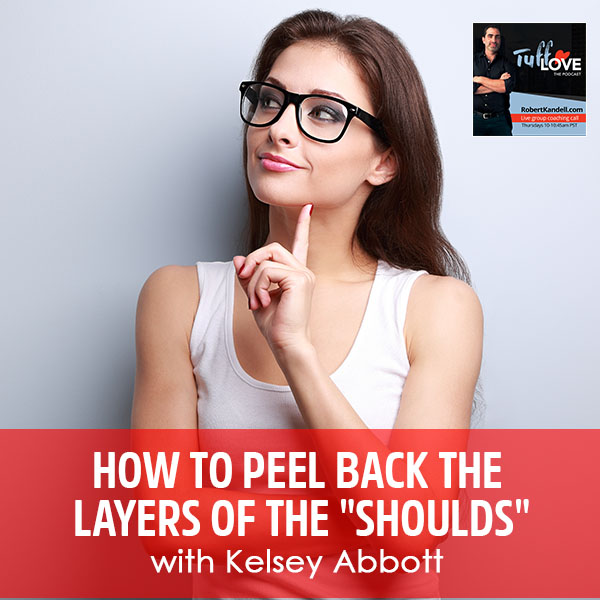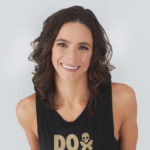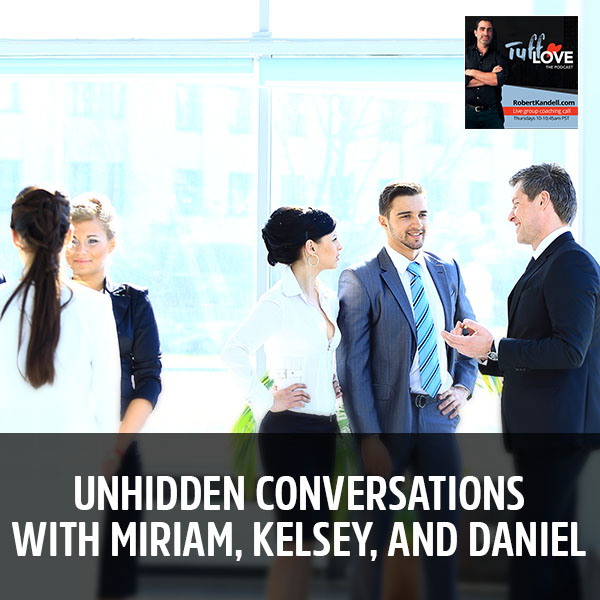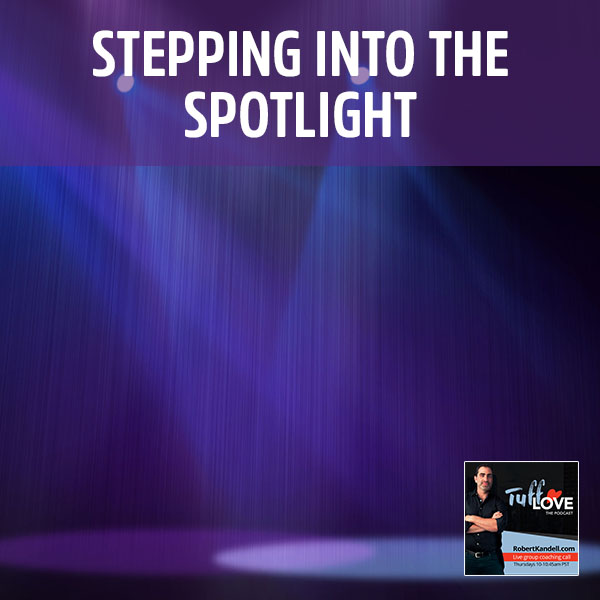
175: How to Peel Back The Layers Of The “Shoulds” with Kelsey Abbott
Jan 16, 2019
Many of us are still attached to the labels and people’s old perception of us even if there’s something else that we want or we can be. We tend to cover ourselves with what society tells us to do. This can be due to the fear of the consequence. Taking off the layers of the “shoulds,” Kelsey Abbott enlightens us how to be grounded in our truth. Kelsey is a confidence coach, instigator of joy, writer, speaker and host of the Find Your Awesome podcast. She helps people clear through those “shoulds” so they can find their unique spark and what they’re meant to serve the world with.
175: How to Peel Back The Layers Of The “Shoulds” with Kelsey Abbott
Live Life The Way You Want
My guest is Kelsey Abbott, a confidence coach who you’ve heard on the show before. I did some quickies with her and a few other people on unHidden Conversations. This show is on the books for a while and I’m excited we talk about the concepts of covered and shoulds; the things we’re taught to do, to be. We talked about how she worked with people how to peel back the layers of the shoulds so you could live life the way you exactly want it to be. We ramble a bit, we got off-track a little bit. We had a good time.
—
I’m with my friend, Kelsey Abbott, who we met through my podcast agent who was on your show. We had such a good time in unHidden Conversations for the book launch. Here you are on Tuff Love. Welcome, Kelsey, to the show.
Thanks so much for having me, Rob. It’s fun to talk to you again.
You are a confidence coach. You help people find their awesome. What got you into this line of business?
I took what now looks like a complete direct path, but at the time looked like a complete wobbly roller coaster of a path. I actually did Major in Psychology in college. It was heading this way. I went off on a Marine Biology tangent and studied killer whales for a while. I worked for the Federal government as a biologist for a little while. Then I became a science writer, and on the side, I was always coaching, swimming, personal training, teaching group fitness, and coaching triathlon. At one point when I was coaching triathlon, I realized very early on that the people I was coaching didn’t so much need workouts for me. Those helped them but what they really needed was help in creating boundaries, knowing where they started and somebody else finished, what mattered to them, knowing that they were worthy. That is when I learned about life coaching. I happened to see a Facebook post by a friend who was like, “I’m doing free life coaching as part of my certification.” I reached out right away, and I was like, “Tell me what is this life coaching thing?” She told me all about it, I was signed up in the next two days for school and the first day there I was like, “This is exactly where I’m supposed to be.”
It’s interesting because part of my work is really around the concept of psychology. In business and life, it’s 90% psychology. I can imagine in the triathlon business to say you’re going to swim two miles, then you’re going to bike 112 miles and then you’re going to run 26.2 miles.
For the IRONMAN, that’s the distance.
If you’re actually doing anything of that magnitude, the psychology, the mental mindset is the most important piece. Of course, physically you need to be able to but your ability to stay in it seems to be highly important.
Your ability to juggle training, it’s not just an hour a day. Sometimes it’s up to six hours a day. Not For me because I’m a short course athlete but it’s still juggling work, family, other relationships, rest and training. That’s a lot.

Finding Ourselves: You should release the beliefs and stories that are holding you back.
How did you end up in the killer whale studying business? What is the story that got you there?
I went to study Marine Mammal Conservation at Duke. A lot of people are studying dolphins because you could do that locally. My dream animal was a killer whale. That’s how I got into killer whales.
There might be some psychological extrapolation we can have from your dream animal being a killer whale.
They’re super powerful and I didn’t know that much about them at the time. I knew more about dolphins and I knew more about baleen whales. I had led whale watches from the New England Aquarium in Boston. We don’t have many killer whales on the East Coast. It was all new to me. I went out to Seattle and then Friday Harbor to do some research on killer whales. I studied the southern resident killer whales, which eat salmon. They do not eat mammals. They’re a small population. They had this phenomenon called peanut heads, which basically behind their blowhole would have this divot, which would make their head look like a peanut. What would happen was malnutrition. The salmon was low and so they were starving. As they starved, they pulled fuel out of their blubber. Blubber, fat, same in humans is where we store toxins. As they were pulling extra nutrition out of their blubber, they were also essentially turning themselves toxic.
You’re a life coach and one of your viewpoints is that we cover ourselves with shoulds. We cover ourselves with what society tells us to do. Would you speak more about that specific viewpoint?
I believe that we are all born with what I call our awesome. It’s our unique spark. It’s our gift that we’re supposed to give to the world. When we’re a toddler, maybe we know what it is, but we don’t know how to express it. As we grow up, we get told things like, “We don’t do that. We don’t act that way. We should finish school. We should get married at a certain age. We should have a certain number of kids. We should buy a house with a white picket fence. We should join the country club.” Whatever it is, we should make this amount of money. We ended up putting those things on another layer. It’s like we’re putting on another shirt and another shirt and these are all should shirts. What I do is I help people clear through those shoulds so they can find that awesome again, that is their unique spark, that they’re meant to serve the world with.
I can see that because I had the same experience. I got the book. I call it The Encyclopedia Britannica Guide of How to Be a Good Robert Kandell in This World. These are the things you’re supposed to do. It took when I was 28 and going to Burning Man and having the flash that, “I’m not my father’s wet dream. I’m not what these books told me to do.” The ability to say, “There’s something else I wanted.” It was a scary thing and it cost a lot. What you’re talking about is people taking off those shoulds but they’re afraid of the impact. How do you guide people in their fear of the consequence of taking off their layers of should?
We are all born with our awesome. It's our unique spark and our gift that we're supposed to give to the world. Click To TweetA lot of time it’s linked to people pleasing. That feeling that you still want to be perfect, you still want to be that person that everyone else wants you to be. It’s the story that everyone else tells you about. It tells about you. Everyone in our life has these stories. If there’s somebody that maybe it’s your kindergarten teacher saw you as this person. As you grow up, you’re no longer that person but they still hold on to that story about you. To guide them through that fear, when we truly love ourselves, we’re okay with it. That’s where the ability to not care about other people’s opinions comes from. When we know that we’re in our truth, when we know like, “This feels good. This feels right to do what I want to do.” It’s not necessarily fearlessness but the fear is worth it because we’re still afraid and it makes what I call a holy shit moment. When I went skydiving, I remember standing at the edge of the plane and this is when I thought, “Holy shit.” Once I jumped out, the fear is gone doing it. There’s nothing to be afraid of anymore. There’s very little in my control right now.
That’s a really good example because I think that’s a good analogy for a lot of people. I’ve coached people who have gone to school for a certain thing and get into the industry and like, “This sucks.” I was six years into my biomedical engineering career. I was in this lab without any windows with this Christian Scientist lab partner who liked to hymn Christian tunes while she worked. I was hacking data for eight hours a day and then going down to get bad Chinese food. I had spent five years and much money and much time to get to this point walking to the edge of that plane to jump out and be like, “I don’t want to do this ever again.” When people go to that edge and be like, “I’ve invested so much time, energy, and expectations. My parents are thinking this, my church group, whatever,” what’s the methodology to nudge them out the door?
When I worked in DC for the government, I was working in a cubicle. I hated that job. I was a marine biologist, but I was trapped in a cube. I was wearing collared shirts and the whole thing didn’t fit me. I think we’re funny about labels and the better attachment to these labels. It was my second weekend of coaching school, I had gone out for a run. When I came back, one of the maintenance guys at the hotel asked me, “Are you a professional athlete?” I was like, “No, I’m a science writer.” I was a science writer, however, two months before that, my funding had gotten cut from all of the major clients. I was now making $200 a month from science writing. That was not the major source of my income. I was more a triathlon coach at that point. I was in school to become a life coach and yet I told him, “I’m a science writer.” I felt that was the attachment to, “I had my Master’s degree.” I still felt I owed that to someone. It’s funny because he didn’t care. He wasn’t judging me. Also, I had come back from a run, therefore it would have been logical.
Was he hitting on you?
No, I don’t think so or I totally missed it. He didn’t care that I was a science writer and my saying that I was a triathlon coach would have been more relevant at the time. That label, that attachment to what we went to school for, what we studied, what we put all this student loan money into, that’s where we get attached to things.
People ask, “What do you do?” especially in Los Angeles, I don’t know if it’s other parts of the world. In Los Angeles, it’s like, “What do you do?” The funny part of Los Angeles is you do seven things. You would say your litany of things, but most in the world you need to have the thing that they identify with because I think we don’t know how to relate with other people as people. We need to talk about the things they do, the title of who they are and if you don’t have a cool enough title, then you’re screwed. You don’t know how to relate or be related to.

Finding Ourselves: Whatever relationship you’re in that makes sense economically, whether it’s a job, marriage, or whatever, you’re still making the choice to be there.
If you don’t have a title that they recognize, that’s something too. If I say I’m a life coach, usually it’s the term confidence coach or sometimes I say that I help people find their awesome. I had times if I said life coach, there’s a whole lot that comes up like, “That’s not real.”
I used to say I was a sex educator. I would use titles either to hide or provoke. There’s really nowhere in the middle. It is like, “What do you do?” “I’m a CFO for a company,” boring. “I’m an accountant,” and no one wants to talk to me. “I teach women how to orgasm. I teach men how to stroke women.” That was a good conversation. You can use titles to inspire more fun things. I’m a normal business coach, life coach.
We live in Sarasota, Florida. Before we moved here, we traveled the country in a camper and our dog.
You’re both tall people.
The camper was very small. The camper was nineteen feet. Our dog should not be forgotten in this because he is also very tall. One campground, somebody asked me what I did. I find it to be a hilarious conversation. I had finished a workout and then she asked me what I did, and I said, “I am a confidence coach.” She proceeded to tell me, “What is that? I don’t believe in that.” She told me, “You shouldn’t work out, you’re going to get arthritis and you’re going to die early.”
She was definitely hitting on you. There’s no question about that.
She was definitely not my person. I was so amused by like, “You’re so clearly a dominant person. We don’t need to have this conversation.”
Titles screw with people and also, we work so hard for the title. A lot of us who have titles don’t fit who we are. How many of us are business executives but want to be space astronauts? How many of us want to go to the job to be sales rep but want to be a writer? What I’m hearing is if the title, the should don’t fit society’s expectations or your parents’ expectations, we have shame about it, so we don’t tell the truth about who we are.
We make up stories. We don’t feel like we’re making them up, but we lean on the stories. We tell people what they want to hear or what we think they want to hear. What we really want is to belong. We want people to accept us. Many times, we feel people don’t accept us because we’re not like them. Many times, people will tell us, “Don’t do that, that’s different. People don’t do it that way.” What I help people do is, “Screw that. Do it your way. Think outside the box. Get out of the freaking box because it’s a cage. Do what your heart wants you to do.”
When we make up stories or we tell people what they want to hear, what we really want is to belong. We want people to accept us. Click To TweetCan you give us an example of a story of one of your favorite clients who went from point A to point B? You can brag about the techniques you used. How did you help that person go from should to happy turned on happy person?
I had a whole streak of teachers as clients. They actually all taught in different types of schools, but they were all running into this roadblock of expectations and focus more on teaching to the test, like specific markers that they had to teach. I worked with one client in particular who wasn’t sure, “Is teaching really for me? It’s what I should do. I went to the career counseling center and this is what I’m supposed to do.” She felt disconnected from her own awesome at the time that if someone asked her opinion, she couldn’t give it. Someone asked her to make a decision, she couldn’t do it. She wanted to please other people so badly. She was so tangled up in FOPO, fear of other people’s opinions. After we worked together, she became so much more grounded in her truth, solid like a tree. She was rooted down in her truth in who she was in the light that she is and is meant to shine with the world that she’s making some big changes. She’s able to see that the expectations of the school aren’t for her. They’re not about what she cares about. What she cares about are those kids. She cares about being outside. She doesn’t care about being in a box or getting things right.
If someone in the audience knows they’re in someone else’s box or checking someone else’s list of boxes, do you have an initial first, second or third step to have them find the courage to love themselves? Find the courage to find their awesome? What are some of your initial steps to get them in that direction?
The first thing is true awareness of what your situation is, where you are, and what your environment is. The second thing is the thing we often skip over, acceptance. It’s accepting that this is the truth, this is the situation. Then once we accept, then we can take action. We so often want, “How can I fix this? What’s the silver bullet?” We skip over that acceptance. Accept that this is what you’re dealing with. This is how you feel about it. This is how you want to feel. What do you have to do to get to where you want to go to get to how you want to feel? Typically, it’s releasing some beliefs, releasing the stories that are holding you back, the stories that might not even be yours, the stories that you’ve been carrying with you since childhood; those shoulds, those limiting beliefs, the assumptions and the inner critic too. It’s the biggest thing.
In my mind, this keeps coming back to parental guidance, parental education, and early year expectations. The boxes were built from childhood experiences. I was a wild kid. My first-grade teacher called me King Robert because I was boisterous, arrogant and then I could learn how to behave. I learned to live inside the box and be accepted. That really is the piece of the puzzle that we all live in these preset things from childhood. Awareness and acceptance, awareness is important. A lot of us are in that rut of, “This is the way it has to be. This is a relationship I have to have.” Sometimes it’s true, sometimes we’re in marriages that are economically challenging to change or family dynamics that you’re stuck in. We don’t have to stay numb and dumb, non-confronting what’s happening. We can up the awareness to see when it wants to be seen.
Whatever relationship you’re in that makes sense economically, whether it’s a job or marriage, you’re still making the choice to be there. It may feel like, “I have no choice.” You always have a choice.
We’ve talked about self-worth being a crucial thing. I think you alluded to this with the loving thyself. In your clients or in the world you look around, where do you think people’s relationship is to their self-worth?

Finding Ourselves: Many of us carry old stories that we don’t even realize that we’re still carrying.
Many of us carry these old stories that we don’t even realize that we’re still carrying. The base of that story is, “I’m not enough. I’m not worthy. I’m not worth it. I’m not good enough, smart enough, pretty enough, strong enough, fast enough.” It comes down to, “I have no idea what I’m doing,” which is true. None of us have any idea what we’re doing because none of us have been here before. We’ve had three conversations before, but we’ve never experienced this conversation before. Many of us develop these stories as kids. For me, my earliest memory of my inner critic was in first grade. Our class is broken into the Panda Bears and the Unicorns. We weren’t supposed to know which kids were the smart kids but this Panda bear knew. She was not one of the Unicorns. The Unicorns were super sparkly and apparently, I was not sparkling. I got that message, “You’re not worthy, you’re not good enough to be a Unicorn. Flat out, you’re not good enough.” Throughout that year, the main goal was to read aloud in front of the class. I couldn’t read yet. I was the last to go and I read, A Dog on a Log and out loud in front of the class, last hit up there and I finished reading. It was a super enthralling story I’m sure, A Dog on a Log. I don’t think there was much else to it.
Everyone clapped and they may even be clapping because we’re finally done with this adventure. They may have been clapping because they were proud of me. They may have been clapping because they were happy. They may not have even known why they were clapping but, in my head, it was a pity clap. They were clapping because they didn’t think I was good enough to ever be able to do it. They still didn’t think I was good enough. I added to that story of, “You’re not good enough, you’re not worthy.” I carried that with me for another twenty-plus years until I finally was able to see it super clearly and see how I’d been dancing around it for so much.
Even in college when I was swimming the 50 free, which took approximately 25 seconds. Over the course of those 25 seconds, I remember one race in particular where I came into the wall and I could see that I was ahead of the girl next to me. I was winning. I logged up and then I pushed off and I’m still working as hard as possible. Everything’s on fire and when I get to the flags, the last five yards of the race, I realized that I was still a little bit ahead of her. I’ve backed off a teeny tiny bit and hit the wall in a second completely satisfied because I didn’t believe that I was worthy of winning.
I was worthy of a second. That was a comfortable spot for me. It is still holding onto that from all that time. It was showing up in different ways. That’s true for so many of us. We hold onto those old stories. The reason we hold on because if my inner critic is telling me I’m not worthy, then when other people tell me I’m not worthy, it’s not going to hurt us badly. Whether your inner critic tells you you’re not worthy, you’re fat, you’re stupid or you’re not sparkly enough then when somebody else says, “You’re fat. You’re stupid. You’re not sparkly.” You’re like, “I got it. I already know that.” The updated version of that story is there’s such thing as a Pandacorn.
It’s a fascinating conversation. Thank you so much for coming on the show. How do people find out about you and how do people work with you?
They can check out my website, KelseyAbbott.com. I’m @KelseyAbbottCPC on Instagram. I’ve got a Find Your Awesome podcast. I’m on Facebook.
Thank you so much for coming on the show. To reflect, we all have these stories. When you talked about not pushing the end of that race, we all do that in some degree. That’s a good lesson to reflect on where you’re giving up to fit into the comfortable nature of your self-worth story.
The first step to finding your awesome is true awareness of what your situation is, where you are, and what your environment is. Click To TweetWhere are you jumping ahead? I jumped ahead into like, “If I win, some unknown story would happen. If I were present and praised, then maybe I would’ve won and then I would’ve dealt with those consequences afterward.” We jump ahead, make up stories.
Thank you so much. You can find her at KelseyAbbott.com. Thank you, all. That’s it. To find me, please go to RobertKandell.com. You can find unHIDDEN, the book, which is out and doing pretty well. You can find that at RobertKandell.com or on Amazon. Thank you so much, Kelsey, and thank you so much, everyone.
Thanks, Rob.
—
Thank you so much for joining me on Tuff Love. Thank you, Kelsey, for a super fun show. For more shows, please visit RobertKandell.com. You can pick up my book, unHIDDEN. It’s available on Amazon or if you need the link, please just go to RobertKandell.com, it’s on the front page. If you enjoyed this podcast, please go to your favorite podcast app, give it a star, give it a review. We always love it. Thank you so much.
Resources mentioned:
- Kelsey Abbott
- @KelseyAbbottCPC – Instagram
- Find Your Awesome Podcast
- Facebook – Kelsey Abbott
- KelseyAbbott.com
- unHIDDEN on Amazon
About Kelsey Abbott
 I SEE YOU trying to be normal, to fit in, to play by the rules. I SEE YOU trying to balance it all and do what you’re supposed to do. I see that flame in your heart—it’s hard to ignore—and I see you telling it, “Shhh, not now.” I SEE YOU scheduling yourself down to the last minute to fit it all in. I SEE the walls you’ve built around yourself. It must feel so restrictive in there. I SEE YOU wanting to stretch your arms out wide, to take in a huge, lung-expanding breath.
I SEE YOU trying to be normal, to fit in, to play by the rules. I SEE YOU trying to balance it all and do what you’re supposed to do. I see that flame in your heart—it’s hard to ignore—and I see you telling it, “Shhh, not now.” I SEE YOU scheduling yourself down to the last minute to fit it all in. I SEE the walls you’ve built around yourself. It must feel so restrictive in there. I SEE YOU wanting to stretch your arms out wide, to take in a huge, lung-expanding breath.
I SEE YOU wanting to grow. I SEE the sparkle in your eyes that hints that you know bigger things await you. I SEE YOU reaching your arms up to the light, but the walls, those damn walls, are so close and so tight. I SEE YOU dreaming of freedom and yearning for an opportunity to create your life. I see you trying to silence that dream, trying to pretend you want the life that everyone else has. I see you trapped in that box, settling for a perfectly good life when you know there’s more. You know you could have a fucking awesome life. But who are you to break the mold, to rock the boat, to shatter the glass?
Podcast: Play in new window | Download





